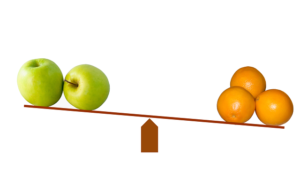Regulatory Climate: US vs. Canada online gambling in 2018
 We have a lot in common with our neighbors to the south. We both live in free countries, with federal and provincial/state governments scripting our laws. Canadians and Americans share a lot of cultural and social values, and we have similar industrial interests.
We have a lot in common with our neighbors to the south. We both live in free countries, with federal and provincial/state governments scripting our laws. Canadians and Americans share a lot of cultural and social values, and we have similar industrial interests.
But there are a lot of differences too, especially when it comes to the legalities of internet gambling. As for which has the better iGaming model, that’s a highly debatable issue. It really depends on what types of wagers you like to place, and in what jurisdiction you live.
US vs Canada Online Gambling Laws – Similarities
The most significant thing we have in common with the United States is that neither of our federal governments like to deal with the issue of online gambling directly. Both have identified gambling as an illegal activity, unless authorized by a province or state. Likewise, both give local jurisdictions the authority to legalize and regulate various forms of gambling.
Another notable similarity is that only a fraction of US states and Canadian provinces have elected to regulate online gambling in some way. Most provinces offer an online lottery system, as do many US states. But only four provinces and three US states went so far as to legalize additional internet gaming activities, like online casino and/or poker games.
Differences in Types of Internet Gaming
One of the most notable differences between US and Canada is the range of online gambling activities allowed. Sports betting is legal everywhere in Canada. As such, almost every province that has legalized online casino and poker games includes an online sports betting product.
In the US, sports betting is illegal everywhere except Nevada. And since Nevada chose only to regulate online poker, there is no regulated online sports betting in the US. If an American wants to bet on sports (legally), they must travel to Nevada and do it in person.
Another major difference is the way in which US and Canada regulates their iGaming. Each regulated province delivers a single internet gambling website to its residents. British Columbia has Playnow.ca, and shares it with Manitoba through a contractual agreement. Ontario has PlayOLG.ca, and Quebec has Espacejeux.com. These sites are run by their provincial regulators, monopolizing their respective markets. No competition is allowed.
In the US, competition helps the industry to thrive. Every land-based casino in Delaware, New Jersey and Nevada is capable of applying for a licence to run an online gambling website. New Jersey is the best example, where five of the seven casinos in Atlantic City operate multiple gambling websites; twenty-three of them at present. This format has proven highly successful, with revenue on the rise the last four years straight.
Legal View of International Gambling Sites
While provinces detest international online gambling websites, there are no Canadian laws to prohibit us from using them. So long as they have no physical presence in Canada, they are beyond the reach of our jurisdiction. Thus players can choose a home-grown iGmaing site, or dip into overseas waters and play at reputable, internationally regulated sites.
In the US, the legal climate is more restrictive, depending where you live. In states with regulated iGaming, it’s illegal to play at offshore websites. Players don’t usually mind, since they have freedom of choice within their borders. A few other states also proscribe the activity. The majority, however, don’t have express laws to stop players from accessing international gambling sites.
The Future of Online Gambling in Canada & US
This may be the biggest difference of all. In the US, the legality of sports betting is being weighed on a federal level. Most states and professional sports leagues support legalization, and it looks as if the bat will swing in their favor before the year is out.
If that’s the case, there are already a throng of states looking to legalize land-based and online sports betting. And with that, it’s probable that other forms of online gambling will be authorized in those states, like poker and casino games.
If these events unravel, the US will be far ahead of Canada in terms of online gambling expansion and affability for players.
In Canada, there is very little foreseeable change on the horizon. The only area of debate currently ongoing is in the Atlantic Provinces. Gaming regulators there are pushing to expand from a prohibitive online lottery only, into a full-fledged Atlantic Canada online gambling schedule, complete with casino and poker games. Even that seems doubtful to occur in 2018.





